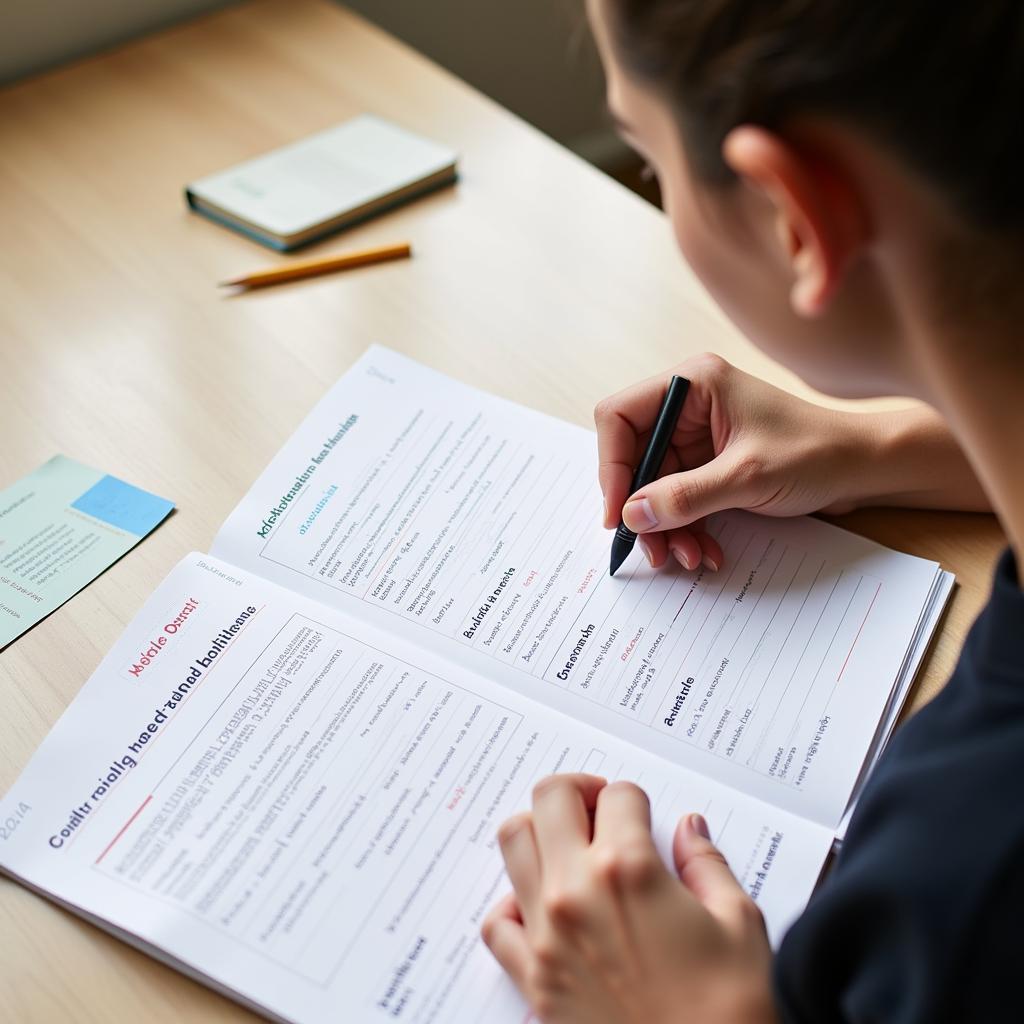Taking effective notes during the IELTS Listening test is crucial for achieving a high score. While many test-takers struggle with this skill, developing the right note-taking strategy can significantly improve your performance and help you avoid overthinking answers during the exam.
Table Of Contents
- Understanding the Importance of Strategic Note-Taking
- Essential Note-Taking Techniques
- 1. Symbol System Development
- 2. Format Structure
- Advanced Strategies for Different Question Types
- Map and Diagram Questions
- Form Completion
- Common Pitfalls to Avoid
- Practice Exercises for Improvement
- Tips for Test Day Success
- Frequently Asked Questions
- How detailed should my notes be?
- Should I use a pencil or pen for note-taking?
- What if I miss some information?
- How can I improve my note-taking speed?
- Is it better to write in uppercase or lowercase?
Understanding the Importance of Strategic Note-Taking
Note-taking in IELTS Listening isn’t just about writing down everything you hear. It’s about capturing key information efficiently while maintaining focus on the audio. A well-structured approach helps you:
- Organize information systematically
- Identify important details quickly
- Save time during answer transfer
- Reduce cognitive load
- Maintain concentration throughout the test

Essential Note-Taking Techniques
1. Symbol System Development
Create and practice using a personal system of symbols and abbreviations:
- → for results or consequences
- ↑↓ for increase/decrease
- & for and
- w/ for with
- yr for year
- govt for government
2. Format Structure
Organize your notes effectively:
- Use indentation for sub-points
- Create clear sections
- Leave space between different speakers
- Draw quick tables for comparative information
- Use bullet points for lists
Dr. Sarah Thompson, IELTS examiner with 15 years of experience, notes: “The key to successful note-taking is developing a system that you can use automatically without thinking during the test.”
Advanced Strategies for Different Question Types
Map and Diagram Questions
- Quickly sketch basic layout
- Note cardinal directions (N,S,E,W)
- Use dots for locations
- Draw arrows for directions
- Write key landmarks
Form Completion
- Predict answer types (numbers, names, dates)
- Focus on spelling of proper nouns
- Listen for corrections
- Note down alternatives
“The biggest mistake students make is trying to write complete sentences,” says Professor Michael Chen, IELTS preparation specialist. “Focus instead on key words and phrases that directly relate to the questions.”
Common Pitfalls to Avoid
Many students make mistakes that can be easily avoided by avoiding grammar mistakes in listening responses. Key areas to watch out for include:
- Over-writing
- Missing context
- Illegible handwriting
- Disorganized layout
- Inconsistent abbreviations
Practice Exercises for Improvement
To perfect your note-taking strategy:
- Record daily conversations and practice noting key points
- Watch news segments without subtitles
- Practice with IELTS sample tests
- Time yourself during practice sessions
- Review and refine your symbol system regularly
Tips for Test Day Success
- Arrive early to reduce stress
- Check your writing tools
- Scan questions before each section
- Keep your notes clear and organized
- Stay focused on relevant information
Remember, effective note-taking in IELTS Listening is a skill that improves with consistent practice and the right approach. Focus on developing a system that works for you and practice regularly to make it second nature during the actual test.
Frequently Asked Questions
How detailed should my notes be?
Focus on key words and phrases rather than complete sentences. Your notes should be detailed enough to answer the questions but not so extensive that you miss the next piece of information.
Should I use a pencil or pen for note-taking?
Use a pencil for initial notes as it allows for quick corrections and is less likely to smudge under pressure.
What if I miss some information?
Don’t panic. Focus on the next question and avoid dwelling on missed information. Sometimes, context from later parts can help you figure out earlier answers.
How can I improve my note-taking speed?
Regular practice with progressively faster audio materials and developing a personal shorthand system will help increase your note-taking speed naturally.
Is it better to write in uppercase or lowercase?
Use whatever is most comfortable and legible for you, but maintain consistency throughout your notes.
